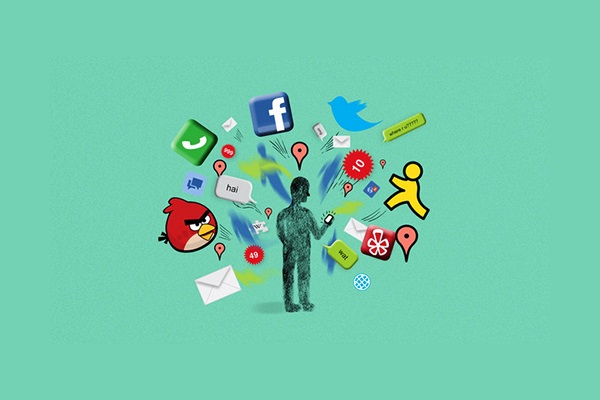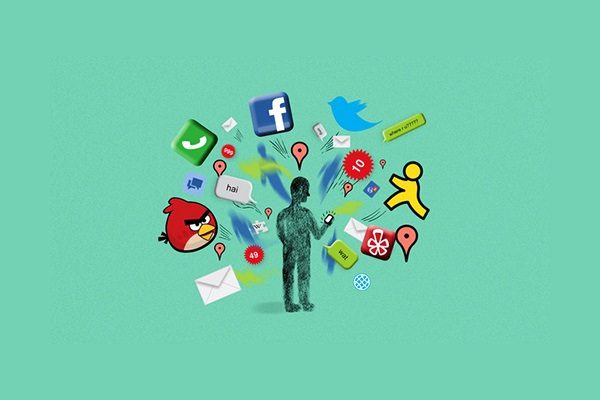

By: Mawlana Khalid Dhorat
Source: jamiat.org.za
The rules of communication and information-sharing have changed since the emergence of social media such as Facebook, Twitter, Pinterest, Instagram and a slew of other sites I’m not even aware of. Whilst the digital screen has simultaneously brought us closer together on a global level, it has also driven us apart on an individual, family and community level. With the exception of a few universally offensive statements or pictures, it’s a rule-free zone where we can interact with society while accepting minimal personal responsibility for the implications of what we say.
In the virtual jungle out there, there are no guidelines for healthy and polite social media etiquette, and so we are left to determine our own boundaries for navigating the seemingly endless opportunities available to us. So, before we snap one more picture of our hot chocolate topped with a foam leaf, perhaps we could benefit from a brief pause – an extra 30 seconds to ask five simple questions that might suggest it’s time to unplug, or at least reconsider when and how we use social media:
1. Am I seeking approval?
People love validation and approval, so ask yourself: “When I seek validation through something I post and that little red flag starts popping up to notify me of each person giving me attention, is this the addictive reward I want?” The flags and the thumbs really work!! A person feels better, so he keeps coming back for more and the cycle of reinforcement continues. It’s like an anti-depressant.
What are the bigger needs asking to be met here? Maybe it’s a desire for community, or recognition. Perhaps it stems from unresolved conflict with someone you love. Or maybe you just thrive on pleasing people and hearing their praise. If your interaction with the internet is driven by a need for approval, consider healthier ways to address this issue and choose to stop reinforcing the unhealthy ones.
2. Am I boasting?
There’s sharing excitement, sharing knowledge, and then there’s bragging. Truthfully, we each know which camp we fall in. People can use their looks to boast, the holiday destinations they visit or the restaurants in which they dine. Why should I know how your Texan steak looked yesterday and who cares what flight you took to Dubai?
Examine your motivations and walk away before using social media as the adult version of show-and-tell. Social media isn’t a show fair.
3. Am I discontent?
Are you looking for something “better” or have self-esteem issues? If so, walk away now. Nothing you will read, write or see on social media is going to solve this one.
Instead, ask yourself why you are discontent and address those needs in the real world. When we view social media from a lens of discontentment, whatever we find will be colored with bitterness and ungratefulness. The lives of your digital heroes will begin to look brighter than yours, while your personal life will take on a sense of lacking.
Let us not forget—their world is as ordinary as ours and our life is as exciting as theirs. Do you believe that in your core? If not, take a break. Deactivate your account for a couple months. Create space to reevaluate and look for answers in the places you’ll actually find them. Stop asking the virtual world to solve dissatisfaction with the physical one.
4. Is this a moment to protect?
When your son crawls into your lap, he doesn’t want you to take his picture and shoot it across Facebook. He doesn’t care who else thinks you have a cute kid. He just wants you to hold him and comfort him. When we interrupt lunch with a friend in order to quote him on Twitter, we invite hundreds of people into a conversation that could have been sacred. We will also miss the sweet memories that may have formed had his words remained simply between the two of you.
Not every great moment needs to be shared. In fact, some of the best times are most enjoyed privately. If we suspend the present in an attempt to capture its beauty in 140 characters or less, we sacrifice our experience of the moment itself. We also rob each other of something that has been lost in our digital age—keeping a handful of memories between us and those we are closest to, or even just between us and God.
5. Is it kind?
Modern social culture tells us that it’s our right to comment on everything, regardless of whether it was addressed to us or not, whether it’s based on information or heresy or not, and without consideration for how it might affect others.
We have been given covered space from which to throw virtual grenades, without requiring us to take responsibility for the weight of our words. We’ve replaced face-to-face confrontation with sharp comments and mocking memes. We write demeaning tweets addressed to celebrities or openly criticize individuals we have never met, hiding behind the convenience that they cannot directly defend themselves and nobody is putting our personal lives on display for public criticism.
We have been given covered space from which to throw grenades, without requiring us to take responsibility for the weight of our words, their effect on other people. Does Allah Ta’ala like this? A Muslim is recognized by his sterling character, so what messages are we sending?
Lastly, social Media seems to be built around the idea that it can infiltrate nearly every part of our lives. And if we let it, that’s exactly what will happen. We are the only ones who can say when it becomes unhealthy. Let us all become Allah-fearing responsible social media users. Use this media responsibly and for the spreading goodness. If not, deactivate all your accounts and head straight for the Masjid.



